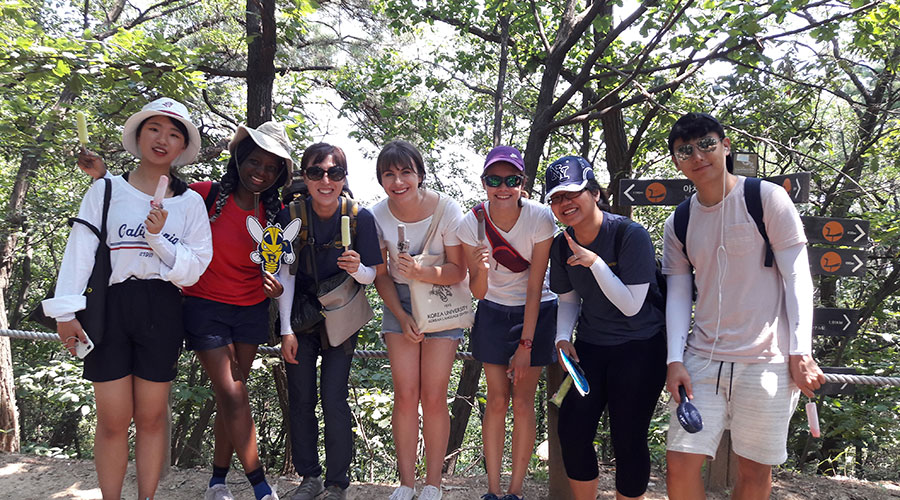Summer Program in Seoul, Korea
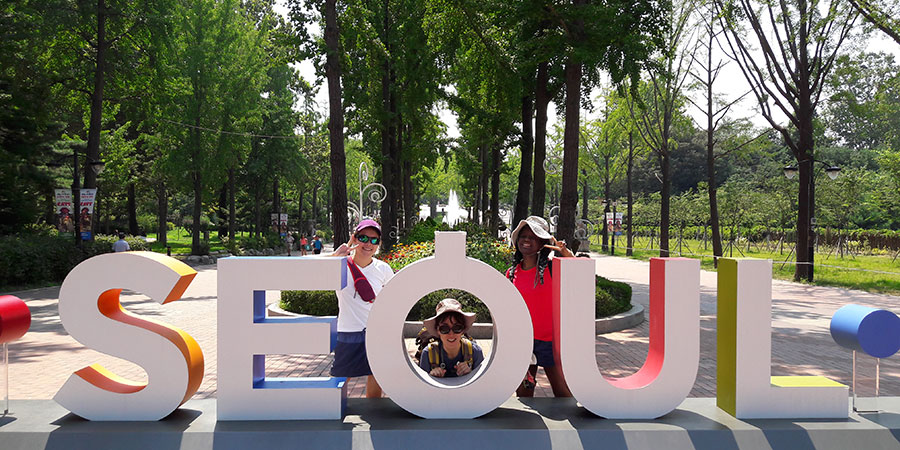
Spend your summer studying Korean in Seoul! Below is information on:
- Program dates and deadlines
- About Seoul
- Program overview
- Prerequisites
- Accommodations
- Excursions
- Fellowship Aid
- Program Costs and Application
- Contact
Please note that all information about this program is tentative and subject to change. Check with the program director for the most recent information.
Program Dates and Deadlines
Specific program dates change yearly. Summer 2026 dates are set for June 28 ~ July 25, 2026. The dates are based on arrival in and departure from Korea. The language course begins on June 29, 2026.
All applicants will be considered for the Mildred Burton scholarship and/or any related donor awards with priority for those with demonstrated financial need. Merit only applicants will be considered for scholarships on a fund availability basis. Scholarship determinations will be made in February 2026, although late applications will be considered on a case-by-case basis.
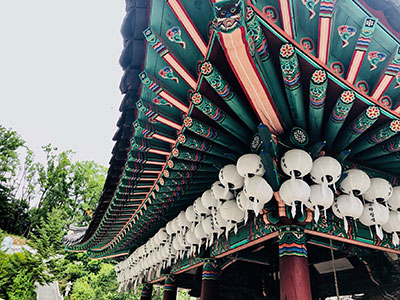
About Seoul
Seoul is the vibrant capital city of, and the largest metropolis in, South Korea. It is not only the business and financial hub of South Korea, but also is regarded as one of the leading technology cities in the world. Having begun its role as a Korean capital city during the Chosun Dynasty in the late 1390s, Seoul is rich in old and modern historical sites and relics that range from ancient palaces to modern landmarks such as the Lotte World Tower. Seoul truly is a place where you can enjoy both the old and modern Korea.
Program Overview
Coursework and Credit
Throughout the program, students will reside with a Korean family. Upon arrival at the host college in Korea, they will take a placement test, and based on the results, they will be assigned to one of the following courses: KORE 107 (Elementary Korean), KORE157 (Intermediate Korean), or KORE 207 (Advanced Intermediate). Students will take Korean language courses in the morning, Monday through Friday at the host college. In the afternoons, they will participate in cultural activities organized by the host college and engage in community service activities under the guidance of the program director.
These experiences will allow students to practice their Korean language skills and deepen their socio-cultural knowledge. Upon competition, students will receive four credits, which may be applied toward the Korean language cluster (H1KOR0011) and the Korean minor, which is slated to be officially offered starting Fall 2026.
Prerequisites
There are no prerequisites. While we recommend one year of college Korean or equivalent proficiency, the program is open to all students who are interested in exploring the Korean language and culture.
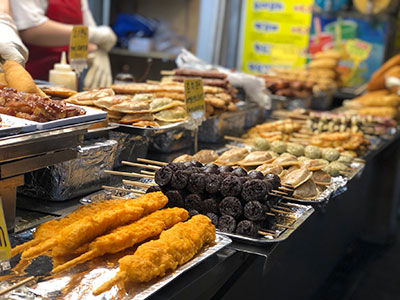
Accommodations
Students will reside with Korean families. The homestays are one of the strengths of the program and can enhance students' socio-cultural awareness and intercultural communication ability by allowing the students to be immersed in daily family life. The host families are all experienced. They will provide two meals a day and a private room, and provide rides from and to the airport. Students will have plenty of opportunities for conversation and cultural exchanges with the host families. (*The homestay center will provide transportation (rides) between the airport and the host family.)
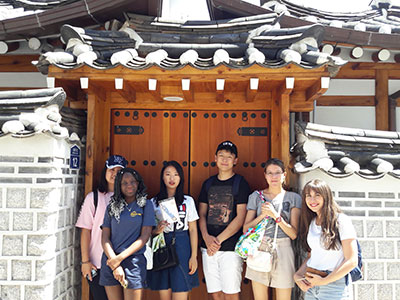
Excursions
Excursions vary from year to year, but the 2026 summer program will include:
- Han Gang (Han River): The Han River is a river in the central region of the Korean peninsula and runs through Seoul, the capital city of South Korea. The phrase “Miracle on the Han River”, referring to South Korea’s rapid economic growth, originates from this river. The Han River is a popular leisure destination for many Koreans, and students will have the opportunity to experience and enjoy its vibrant culture as well.
- Acha San (Acha Mountain): About 70% of the Korean peninsula is mountains, and many mountains are located even within Seoul. Koreans are famously enthusiastic about hiking, and recently, many international tourists have also visited Korea to experience this hiking culture. Acha San, located in the eastern part of Seoul, overlooks the Han River on one side. Students will experience Koreans’ hiking culture firsthand while hiking by joining local hikers on the trail and enjoying the mountain’s scenic review views. (*This is a mild hike, not strenuous.)
Fellowship Aid
The UR Education Abroad Fellowship Fund helps defray costs for UR undergraduates studying language abroad. Applications are part of the online application process due at the end of January.
Students may be eligible for other scholarships. Please visit the Education Abroad website for more information.
Program Costs and Application
The total program fee is $5,100.
- Tuition (4 credits)
- Homestay (two meals a day, transportation to/from the airport)
- All cultural activities
- All cultural excursions
The program cost does not include personal costs (e.g., visa fee, airfare, lunch, local transportation for commuting to the language center and for community service, cellphone, souvenir, etc.).
Tuition and program costs will be added to your official tuition bill. For information on payments and deadlines, please refer to your official billing statement from the Office of the Bursar. Details will be provided by the Center for Education Abroad after you have been admitted and committed to the program.
Contact
For more information, contact:
Professor Myounghee Cho
Assistant Professor of Instruction in Korean
Lattimore 430
myounghee.cho@rochester.edu
